Keke Palmer Is in Her Renaissance
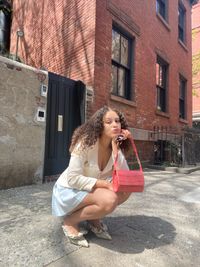

History may largely be told from the perspective of the group in power, but art has always been a tool for those on the margins to dismantle, challenge, and shift the collective narrative. A renaissance is not a cultural movement without the icons behind the curtain, and there aren’t many other present-day artists out here doing the work onstage and backstage like Keke Palmer. The multi-hyphenate creative sees her own work and the work of fellow artists right now as the beginning of a new age, a new way to view the world.
"We’re in an extraordinary moment—almost like a renaissance age—where you can truly create no matter who you are, and people are using their platforms to say something,” Palmer shared with us over Zoom in early February. And she’s right. We have faced unprecedented events over the course of the last two years, and as we continue to adapt, the world today is reminiscent of the fraught state of politics and culture in the early 15th century. The renaissance began after the bubonic plague (hello, global pandemic), and it coincided with the start of the Atlantic slave trade, something that continues to shape how we’re currently protesting systemic racism. Not to mention, there’s been an explosion of investment in the arts and science, from the development of the COVID-19 vaccine to the proliferation of streaming services because of the pandemic. But Palmer’s stardom doesn’t make her immune to the changes the wider world has gone through over the last few years. In fact, she welcomes change both on a macro level and in her personal life.
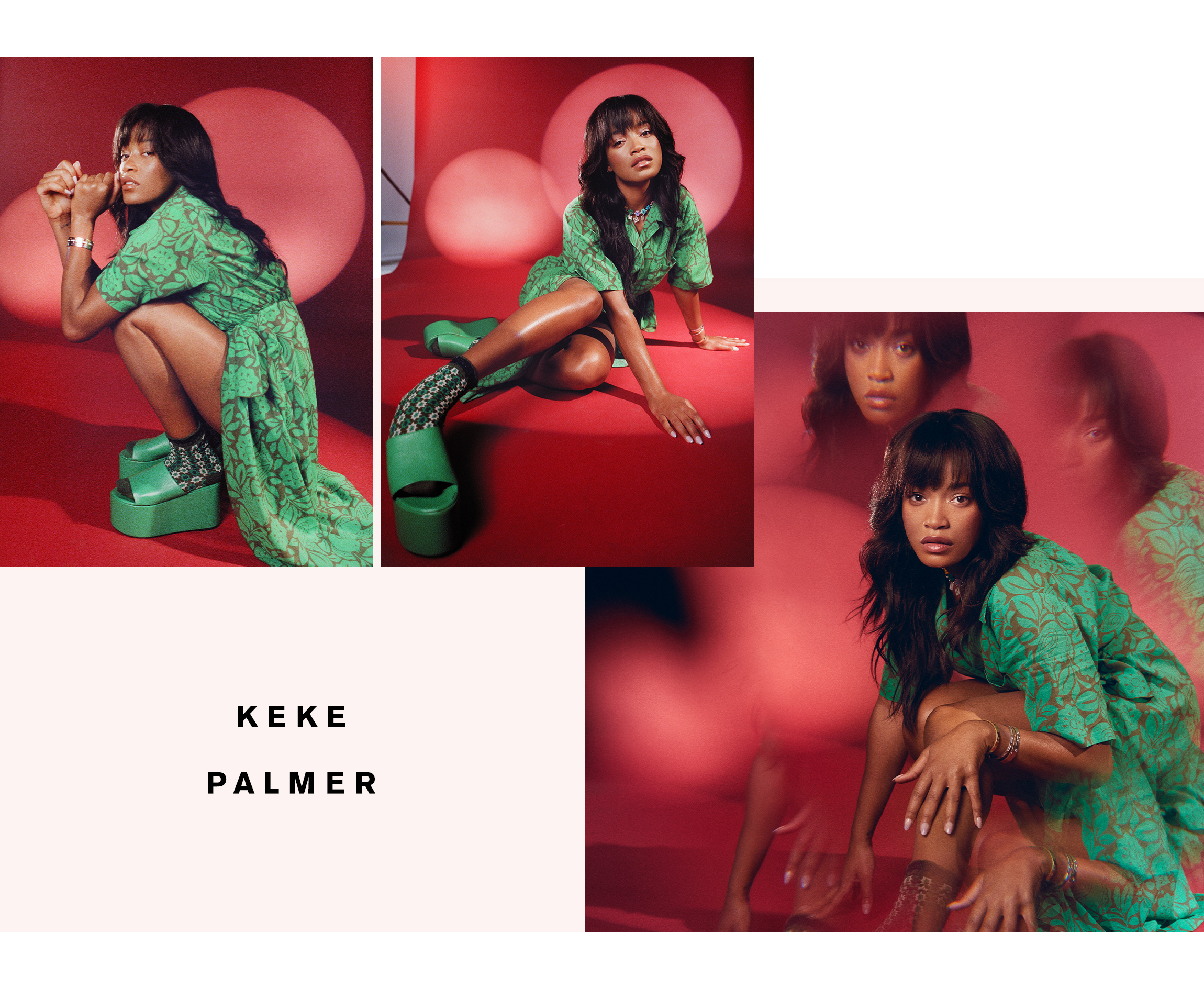
Glo Green ($36), and necklace; Simon Miller Blackout Platform Slide Sandals ($490); Cartier bracelets)
Anyone who has followed Palmer throughout her near two-decade-long career knows that she’s been an agent of change in every sense of the word. She began acting at the age of 10 and went on to become the youngest actor to receive a Screen Actors Guild nomination for her performance in The Wool Cap. She also won an NAACP Image Award for her performance in Akeelah and the Bee, was the first Black actor to star in Cinderella on Broadway, and broke the record for Nickelodeon’s largest audience for a live-action premiere for the series True Jackson, VP. Palmer truly has been out moving the culture forward as this generation’s trailblazer.
"Whether it’s me or the people that have come before me, it’s important—especially as a Black person—to always acknowledge being here because there were things and reasons as to why we weren’t in some of these spaces,” she said. Palmer understands that her career and the work of so many fellow artists are testaments to how things have moved forward. She continued, "It can be disappointing that it’s taken so long for some of these things to happen, but we must focus on the fact that we’re here and congratulate one another for making those strides and thanking the people before us.” But it’s not enough for Palmer to just be the first. It has always been about asking herself this question: "Now that you’ve done that, how can we expand upon it?”
Palmer is now at a point in her career where her art is about something bigger than herself. "I’ve learned that my love for the arts is beyond a personal thing,” she said. "My initial draw to working in entertainment was about my love for it. But as I’ve grown and have seen the impact that roles and art ultimately can have on society, it feels more like a community. The next chapter of my career is not just on camera, but [it’s] being a part of telling stories from behind the camera as well.”
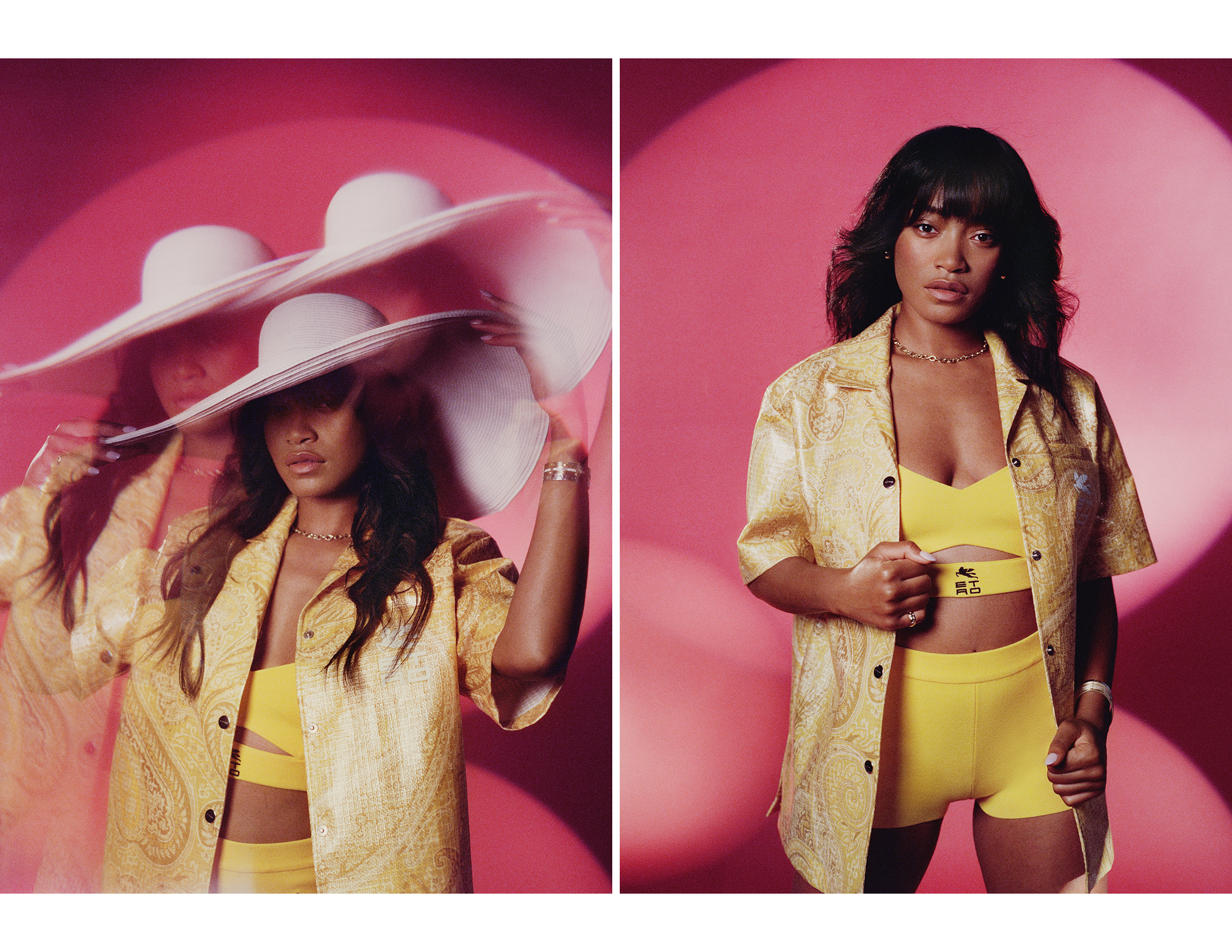
Of course, Palmer will still be in front of the camera. She has four major projects lined up this year alone, starting with Krystin Ver Linden’s directorial debut, Alice. The film is based on an actual event, and Palmer portrays an enslaved woman in Georgia who runs away and realizes that it’s not the 19th century. It is, in fact, 1973, and the Emancipation Proclamation ending slavery in 1863 had been passed 110 years ago. We won’t spoil all the details about what else happens in the revenge-fueled thriller, but we will say it’s not the only performance from Palmer that will keep you on your toes. In addition to starring in Jordan Peele’s next thought-provoking horror film Nope later this summer, she’s lending her voice to two major Disney titles—The Proud Family reboot and Lightyear.
While Palmer has a roster of great projects in the works, her other career moves, such as founding her record label, Big Boss Entertainment, are more indicative of where she sees herself expanding. She’s all about helping a crop of fellow artists find ways into the industry. "It excites me to get to a point in my career where I can open the door for someone. I want my legacy to be about sharing and expanding upon what I have. I’m always asking myself, ‘How can I do something that doesn’t just feed me?’”
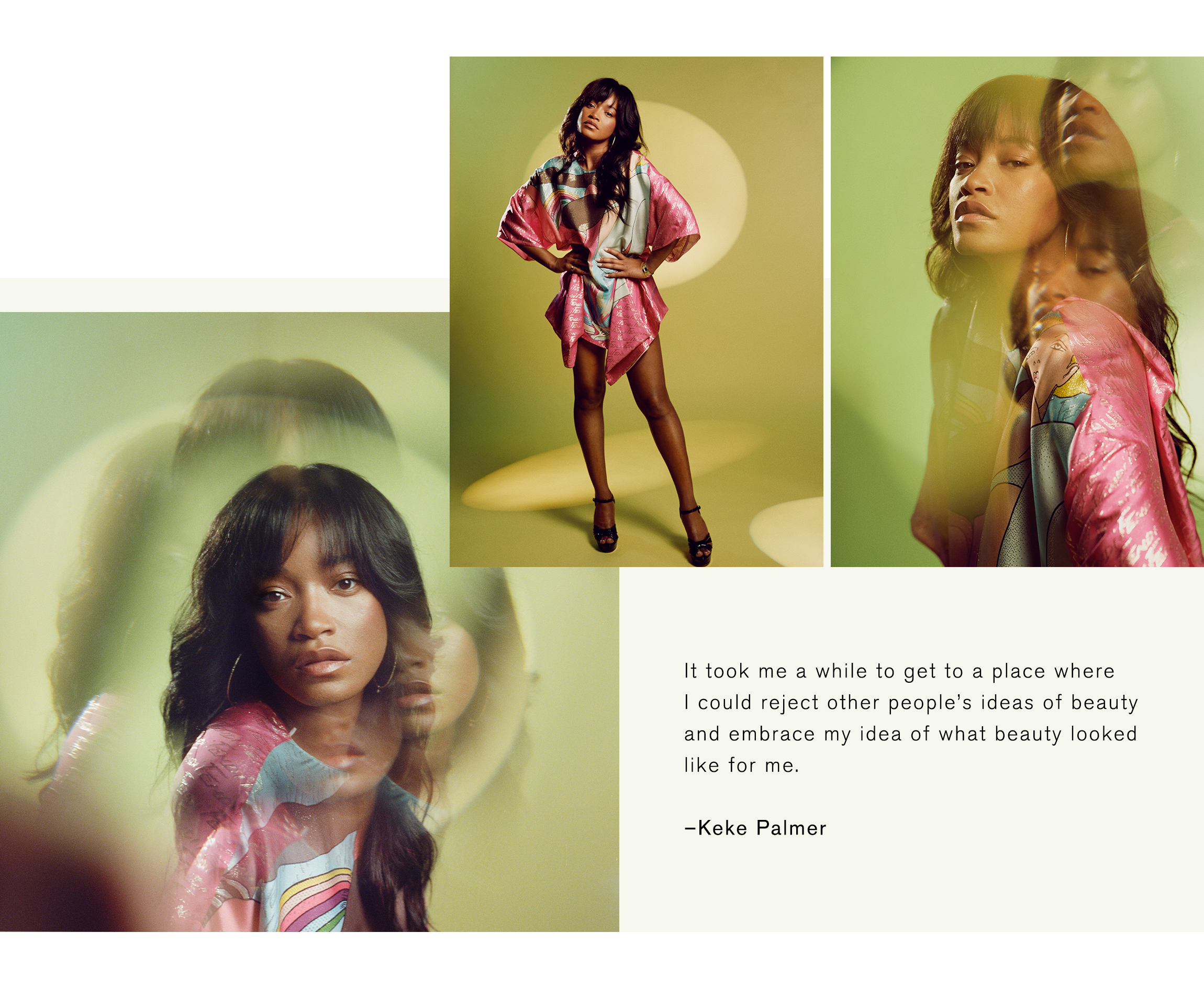
For anyone, much less someone who has spent most of their life in the spotlight, thinking about how your work impacts others requires deep introspection. For Palmer, change, rebirth, and personal evolution are of the utmost importance. She reminisced, "I remember people asking me in interviews when I was a teenager, ‘What’s your biggest fear?’ They were expecting me to say I was afraid of spiders or heights, but for me, I’ve always feared not growing.” It’s a valid fear considering the fact that growing out of being a child star is no easy feat, yet Palmer has been able to keep it movin‘ and keep her sights on the bigger picture.
That bigger picture not only includes opening doors for future creatives, but it also entails allowing her work to shift preconceived notions. "Art can transform people’s perspectives and allow them to humanize themselves,” she mused. "As humans, we have consciousness. We can get jealous. We can have an ego. We can love. We can hate. So to use art as a way to help people process those feelings is incredible because many of us don’t know how to process our existence. Whether it’s music or it’s a film or it’s a book or even if it’s an online article, those things are powerful because they allow people to process their experience.”
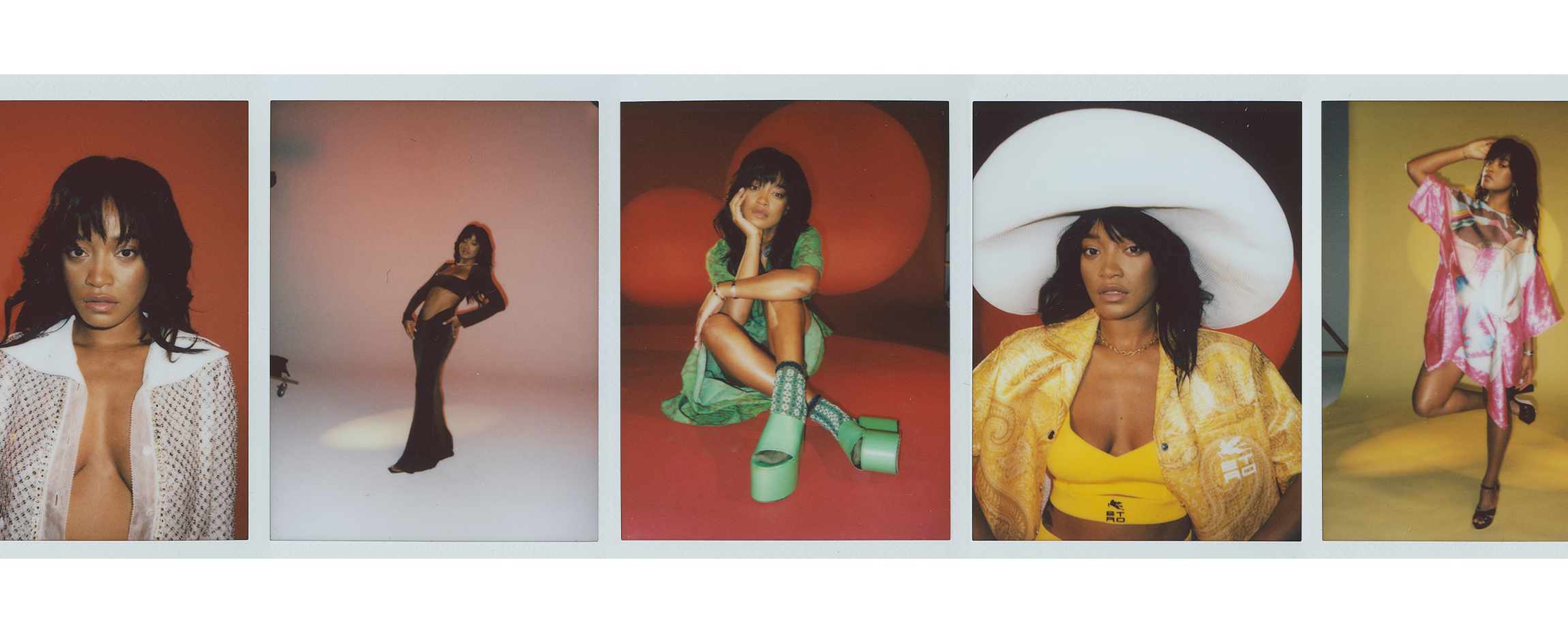
And it’s not just classic categories of the arts that can help us express and understand our humanity. Fashion and beauty possess that power too. "I like clothes, but I’m not necessarily a fashion girl,” Palmer candidly stated when we asked what role style plays in her life. "I don’t know if I can keep up with trends, but it’s still incredible to me. It’s a different art form. I’m thinking about writers and directors and cinematographers, and the fashion set is thinking about designers and the houses.” Ironically, although Palmer doesn’t identify as a fashion person, she’s caught the eye of the fashion industry over the past few years. Last year, Vogue tapped Palmer to host the Met Gala—a role she excelled in with her gregarious interviews and gorgeous Sergio Hudson gown. She may feel more comfortable in her "producer’s uniform”—a blazer, a graphic T-shirt, jeans, New Balance sneakers, and a hat—but upon further probing of her experimental red carpet style and her constant exploration of different hairstyles through various wigs, braids, and curls, it’s clear that Palmer has the same reverence for fashion and beauty that she has for any other form of self-expression.
By embracing her fashion and beauty sense, she’s shifted her perspective of herself and the broader concept of beauty. "I think my hair and my style have become representative of who I am,” she said. "In each moment, every type of expression I made through my hair has been correlated to how I was feeling inside.” Getting to that point took time. Palmer recalled, "When I was younger, I always felt like having straight hair and assimilating to that kind of corporate look was a means to damn near survive. With clothing, I felt ostracized for showcasing some of my more masculine characteristics through choosing to wear pieces that didn’t fit within the ideas of how a woman is supposed to be like in this world. It took me a while to get to a place where I could reject other people’s ideas of beauty and embrace my idea of what beauty looked like for me. I’ve finally regained my power over my image.”
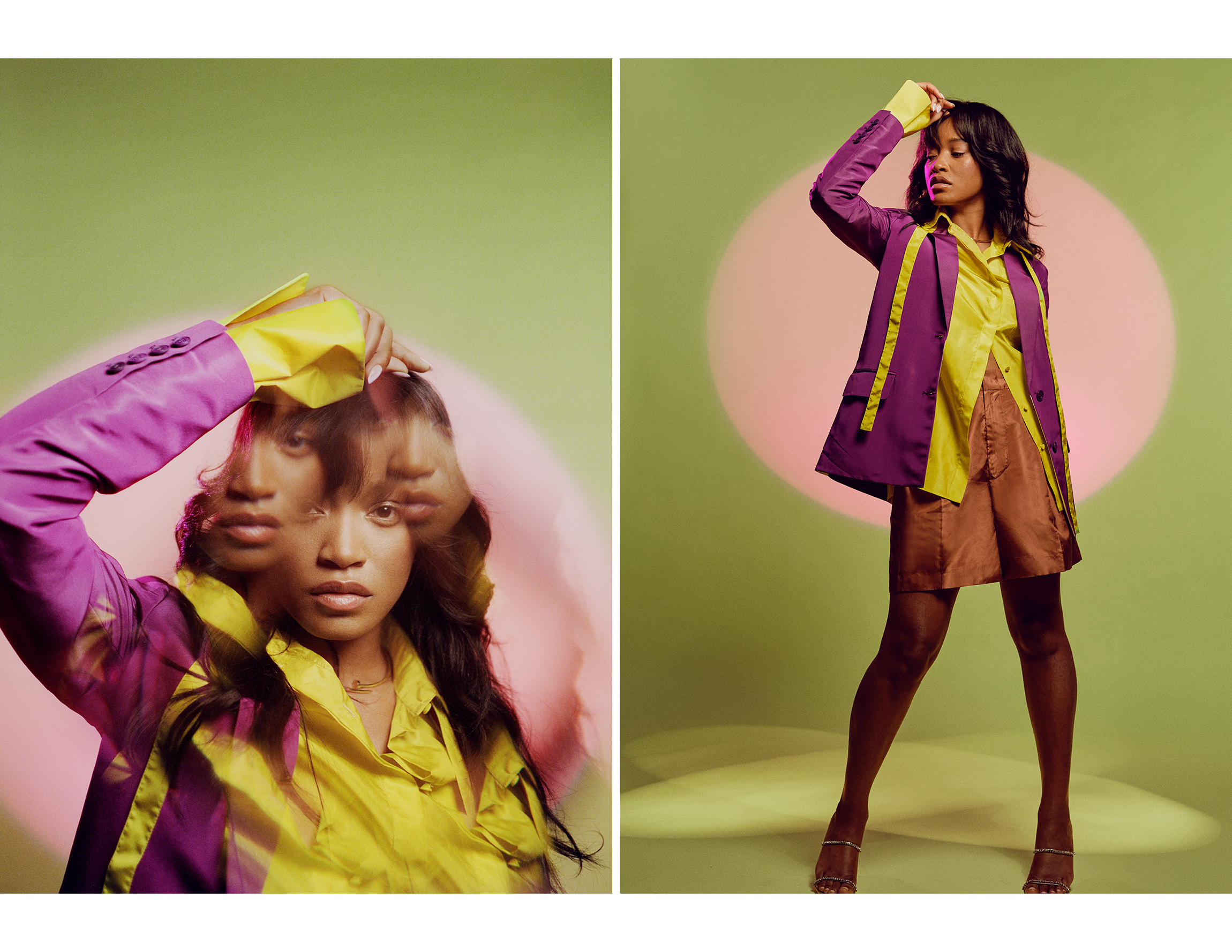
But like with all art forms, Palmer has learned that it all goes back to who has ownership over the story and who has the power to define what’s beautiful. Palmer is no stranger to the pressures the entertainment industry and the wider world puts on women, and specifically Black women, to look a certain way. But she also believes that things are changing because, as individuals and as a collective, our ideas around what’s deemed beautiful have been evolving. "People don’t want just to see the same concept of what beauty is, what good is, what interesting is, or what is funny,” she expanded. "What we want to see is a cornucopia of what’s dope.” Palmer believes that art should not only serve the function of reflecting humanity. It should also expand the way we see the world.
Nothing speaks more thoroughly to Palmer’s aim to challenge how society views marginalized communities and history itself than her body of work. From Hustlers, a story aimed at destigmatizing sex work, to Alice, these films are challenging preconceived narratives. But when we asked Palmer why starring in another movie about slavery is important, she admitted, "There’s a huge disconnect when we watch films about Black people that put us in just these total victimized positions. … That’s not the color of humanity, and that’s not the color of Black people. We deal with and process pain in such an empowering way, in a resilient way that I don’t think is always properly portrayed.” She paused and then continued, "But with Alice, after reading the script and starring in it, I know it’s not that. It’s about shifting our perspective and the story we have around slavery. We’re peeling back those layers that encourage this mindset that derived from a tradition that has held people back.”
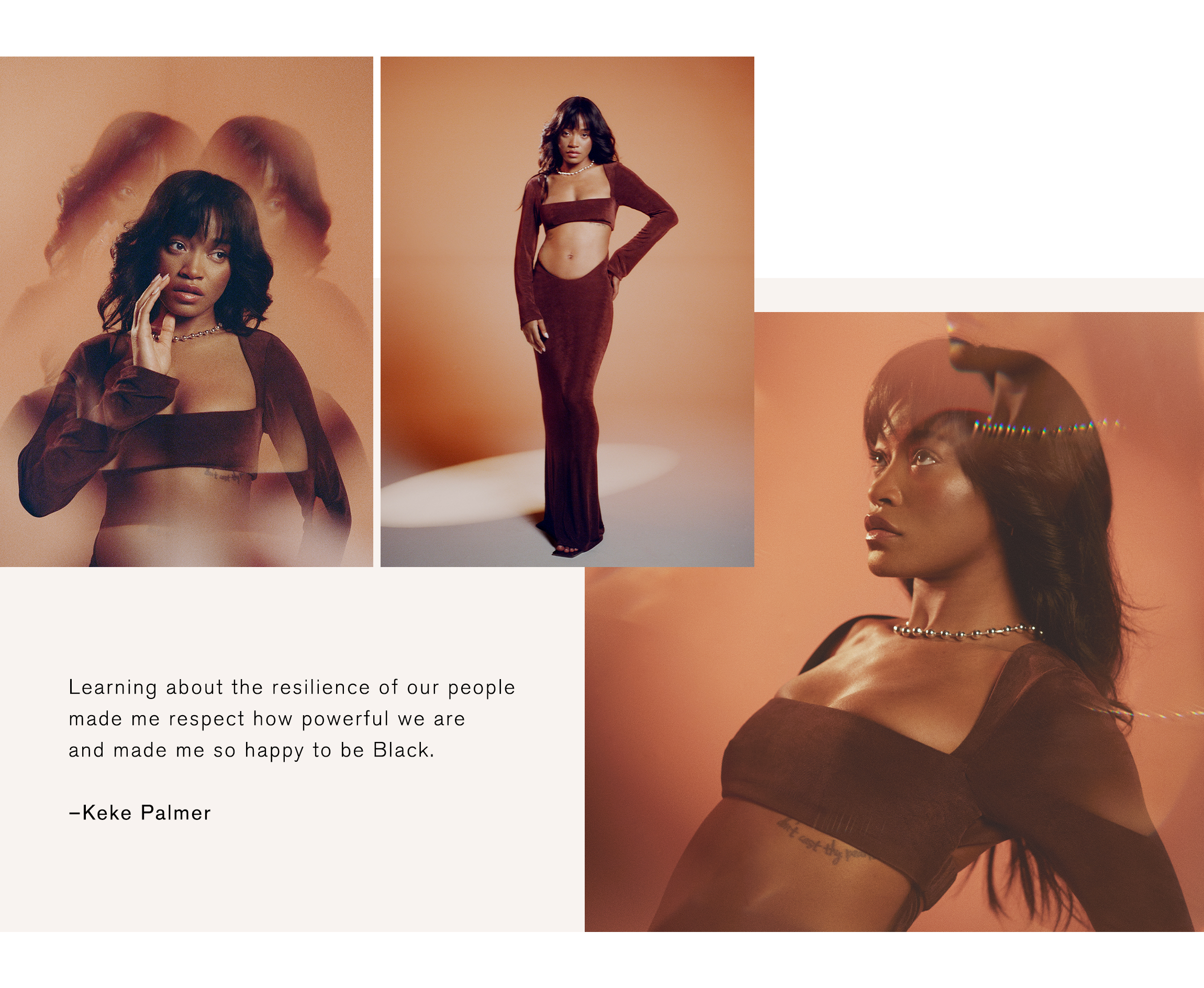
History is something Palmer has always been passionate about. She shared, "I loved learning about history growing up. My parents always talked to me about our history, and they always made me feel good about it. Learning about the resilience of our people made me respect how powerful we are and made me so happy to be Black. And that feeling is what I want to share through this film.” In many ways, Palmer’s intentionality in her approach to being a part of the Alice cast makes it one of her best performances yet. But we’d be lying if we said that her thoughtfulness doesn’t extend beyond the screen into her everyday life.
Another way in which Palmer aims to ignite change is through her social media presence. "I try to normalize what I do and allow people to see the entertainment industry from a space outside of fame and popularity. I think that those two things can be a real distraction to art’s true purpose and why people get into the arts,” she told us. While Palmer has, in many ways, shared her persona in the public eye through her viral TikTok videos and iconic interviews with publications such as Vanity Fair, she understands that social media can both empower a movement and distract us from our humanity. Putting herself out there and understanding that the public will never fully know her is something that she’s come to terms with. "I’ve been able to articulate who I am outside of my career more because of the inner work I’ve been doing with therapy. It’s allowed me to set a boundary with the public. … At the end of the day, this is a career. This is my job, but I’m a person outside of this,” she said.
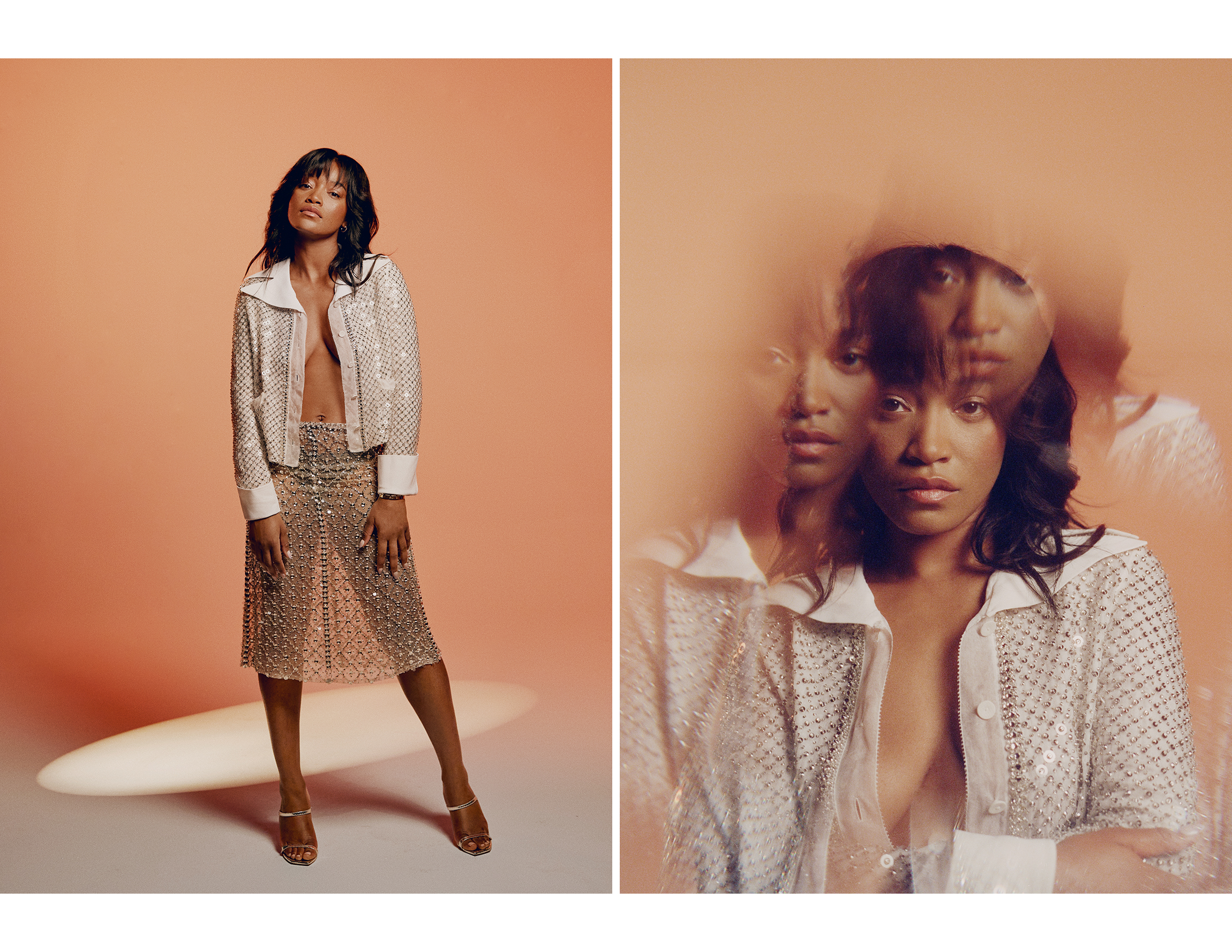
That is often something our culture forgets—celebrities, influencers, and anyone behind the keyboard are human beings. And while Palmer has built her name by entertaining, her relationship with her work has undergone a massive change. She understands that it’s not just about being a creative vessel. She must also prioritize giving herself grace. She remarked, "We have to be open to finding other versions of showing up for ourselves that don’t always put us in a position of grief, sorrow, or exhaustion. … It’s easy for us to have to go there with it when we do go to that place of ‘Is this gonna make my ancestors proud?’ or ‘Am I fighting for the cause well enough?’ There isn’t any right one way to do any of that. So you have to give yourself grace and allow yourself to rest in between doing the work.”
The rest portion has not always come easy for the star, who is undoubtedly one of the busiest women in Hollywood. But she’s learned that change doesn’t happen overnight. It takes time. Palmer sees her life in seasons: "There are seasons for grind time, and there are seasons for rest. Currently, I’m in my grind time. But I’m learning to find rest in between. Doing things that are solely fun for me, that doesn’t involve anything other than me just being.” While it’s hard to imagine Palmer just chilling on her couch anytime soon, after an hour-long conversation with her, we almost got the sense that she’s settled into a perpetual state of metamorphosis. She stated, "All I could ever hope for is to be constantly growing.” And she’s done that well. She’s grown in her career, made peace with who she is, and found her life’s purpose. She has evolved into her most authentic Keke. In many ways, Palmer’s inner shift has opened the door for her to take advantage of all these incredible opportunities that will lead to a larger cultural change. There’s no doubt that Palmer is in her renaissance era, as she’s ushering in a new age not only for herself but also for generations to come.
Photographer: Alex Harper
Stylist: Lauren Eggertsen
Hairstylist: Ricardo Roberts
Makeup Artist: Jordana David
Manicurist: Stephanie Stone
Creative Director: Alexa Wiley
Videographer: Samuel Schultz
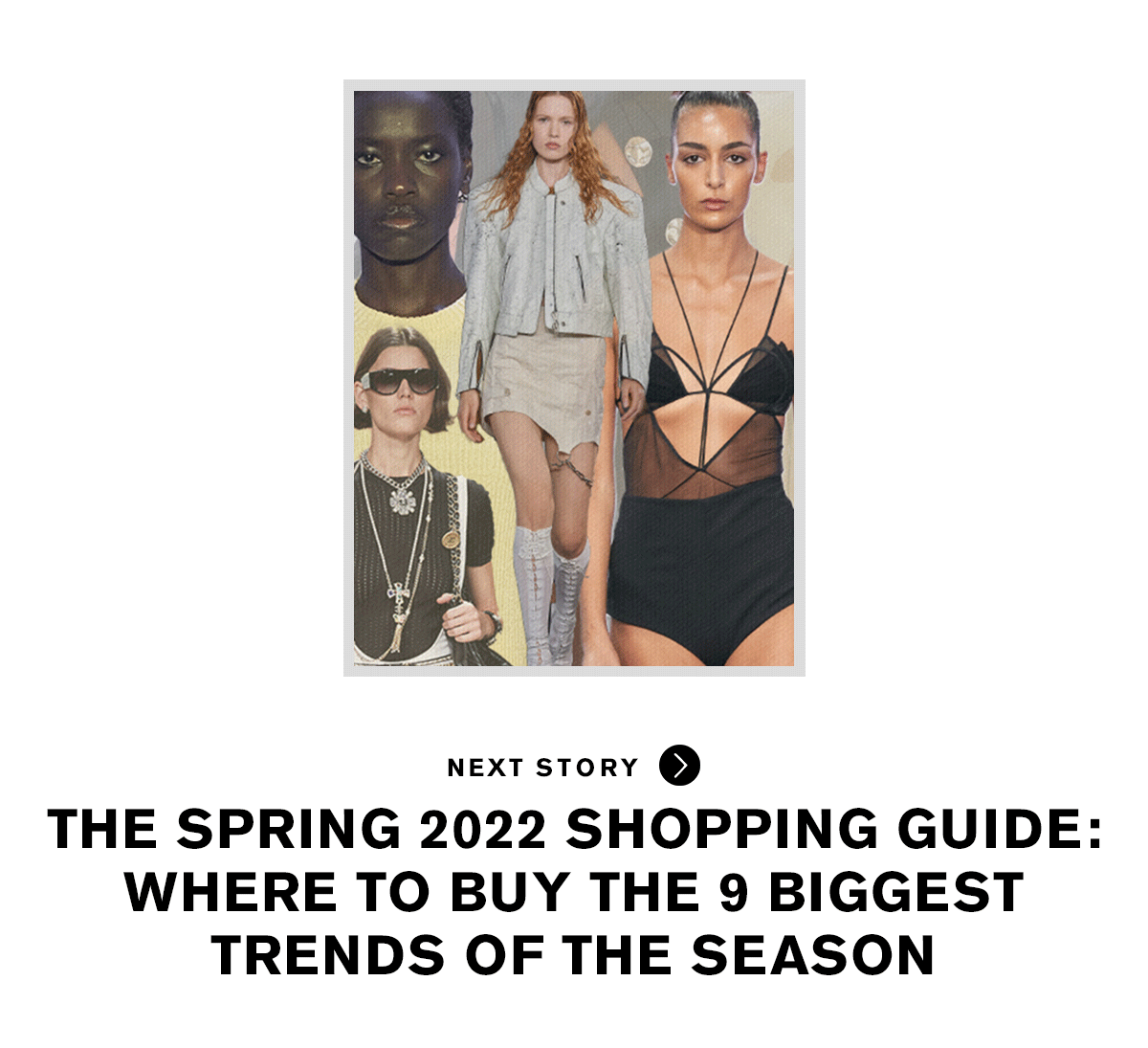
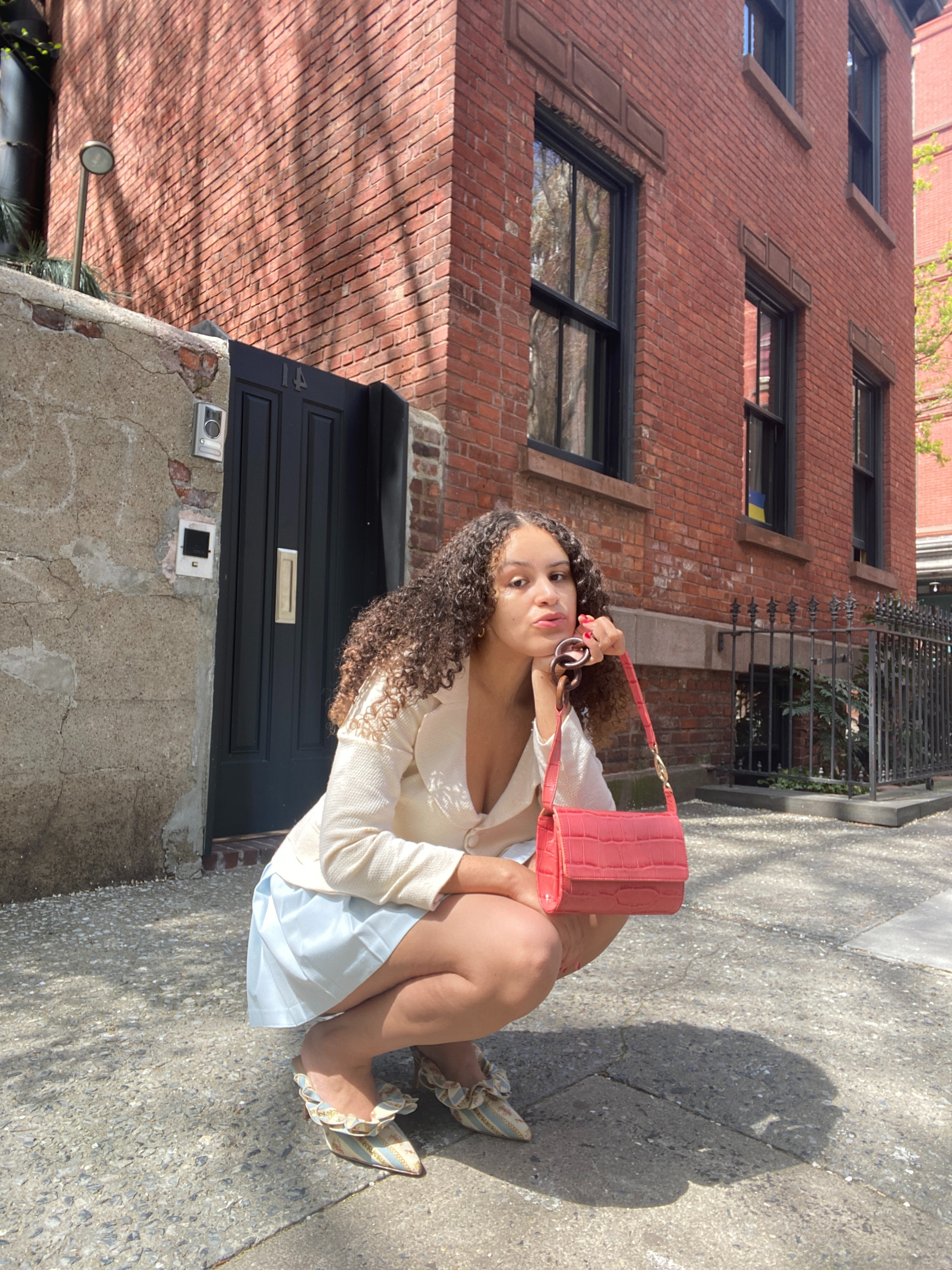
Jasmine Fox-Suliaman is a freelance writer and editor living in New York City. What began as a pastime (blogging on Tumblr) transformed into a lifelong passion for unveiling the connection between fashion and culture on the internet and in real life. Over the last decade, she's melded her extensive edit and social background to various on-staff positions at Who What Wear, MyDomaine, and Byrdie. More recently, she’s become a freelance contributor to other publications including Vogue, Editorialist, and The Cut. Off the clock, you can find her clutching her cell phone as she's constantly scrolling through TikTok and The RealReal, in search of the next cool thing.